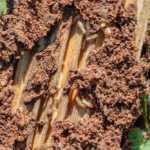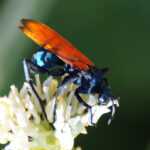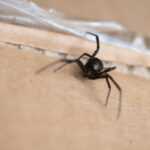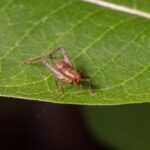Rodent Control: Strategies for a Rodent-Free Environment
Discover effective strategies for rodent control to create a rodent-free environment. Learn practical tips and solutions to safeguard your space. Read more!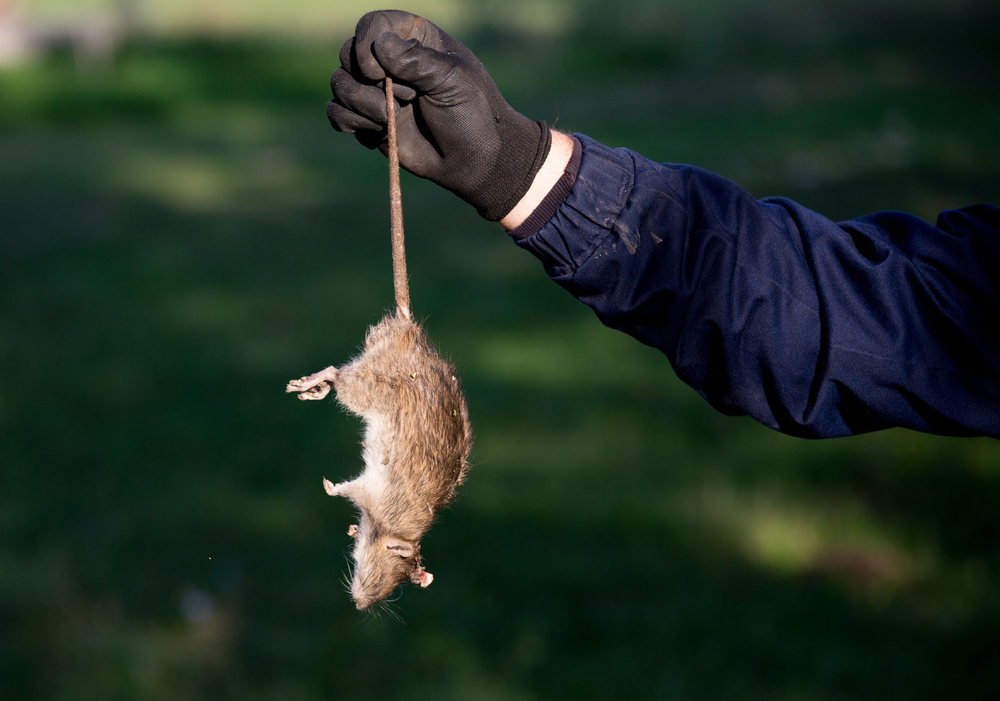
Effective Rodent Control Methods | Eliminate Infestations Today
Facing a rodent infestation? Learn how to detect, control, and prevent rodents in your home. This guide covers all aspects of effective rodent control.
- Early detection of rodent infestations is vital; signs include droppings, gnaw marks, and unusual noises in hidden areas.
- Understanding the characteristics of common rodents, such as house mice and Norway rats, is essential for effective pest control and tailored strategies.
- Implementing effective rodent control techniques, including clean environments, sealing entry points, and using traps, is critical for preventing infestations and protecting health.
Identifying Rodent Infestations
Early detection plays a key role in managing rodent infestations. Initial signs include droppings, gnaw marks, and unusual noises. Regular checks for these indicators can help catch a rodent problem before it worsens.
Rodents prefer to stay hidden, making it important to look for signs in less obvious places. Inspections in hidden areas can reveal early signs of an infestation, allowing for prompt intervention and more effective rodent control.
Routine checks are necessary for maintaining a rodent-free environment. Immediate action upon discovering signs of rodents can minimize the impact of an infestation and protect your home.
Recognizing Rodent Droppings
Rodent droppings and rat droppings clearly indicate an active infestation. Often found in hidden areas like cabinets and drawers, these droppings are typically pointed at one end and may contain hair, distinguishing them from other feces.
Discovering droppings after cleaning strongly suggests an active rodent population. Regular checks can lead to early detection and management of infestations.
Identifying Gnaw Marks
Gnaw marks are another clear sign of rodent activity. Rodents gnaw to maintain their teeth length, and these marks often indicate past visits by rodents.
Gnaw marks are often found where droppings are present, helping to identify active rodent sites. Regular checks for these marks aid in early detection and assessing the severity of the problem.
Detecting Unusual Noises
Scratching, gnawing, squeaking, and rustling are common signs of rodent activity. These noises are often heard within walls or at night, so remain vigilant for any unusual sounds.
Checking potential hiding spots regularly can facilitate early detection and prompt intervention. Identifying unusual sounds is critical for effective rodent control and prevention.
Types of Rodents
Understanding the types of rodents that may infest your home is essential for effective pest control. Common rodents include house mice and Norway rats, each with unique behaviors and habitats that influence control strategies.
House mice are small, with light brown or grayish fur, weighing around 0.5 to 1 ounce, and have a body length of about 3 to 4 inches, excluding the tail. Norway rats, also known as brown or sewer rats, are larger and primarily nocturnal, often found in the same environments as rats and mice.
Identifying the specific rodent species and individual rodents in your home can lead to more effective, tailored pest control strategies.
House Mice Characteristics
House mice are highly adaptable, thriving in various environments and entering through openings as small as a quarter of an inch. They typically have light brown or grayish fur and weigh around 0.5 to 1 ounce, with a body length of about 3 to 4 inches, excluding the tail.
Their adaptability and ability to squeeze through tiny openings make them common in homes and challenging to control.
Norway Rats Characteristics
Norway rats, also known as brown or sewer rats, are substantially larger than house mice. They exhibit burrowing behavior and prefer nesting in lower areas, such as basements or debris piles.
Primarily nocturnal, Norway rats are most often seen foraging for food at night. Their specific characteristics and behaviors contribute to their survival and adaptability, making them a formidable pest to control.
Health Risks from Rodents
Rodents carry various pathogens that can cause many diseases in humans, including hantavirus and leptospirosis. They can transmit over 35 diseases, posing significant health risks. Being aware of these risks helps in implementing effective rodent control measures to protect your family’s health.
Rodents spread diseases directly through bites, scratches, or contamination of food and surfaces, and indirectly via parasites like ticks, mites, or fleas. Recognizing these health risks emphasizes the importance of effective rodent control and prevention strategies.
Diseases Spread Directly by Rodents
Rodents can spread diseases directly through rodent bites, scratches, or contamination of food and surfaces. Infections like leptospirosis and hantavirus can spread through bites or scratches from infected rodents, or by handling contaminated materials or consuming food tainted by rodent droppings.
Understanding these direct transmission methods highlights the importance of maintaining a clean and rodent-free environment.
Diseases Spread Indirectly by Rodents
Rodents can also transmit diseases indirectly through parasites like ticks, mites, or fleas. These diseases spread to humans through bites from infected parasites or through consumption of intermediate hosts.
Recognizing these indirect transmission routes is crucial for effective pest management and public health.
Effective Rodent Control Techniques
Effective rodent control requires combining strategies like cleanliness, regular inspections, and proper food storage. Sealing entry points and securing food sources are vital steps in preventing infestations. Implementing integrated pest management effectively reduces the chances of rodent infestations.
Rodent traps are a common and effective method for controlling rodent populations. Various types include snap traps, glue traps, and humane traps that allow for catch and release. Combining traps with exclusion methods enhances rodent control effectiveness.
Eliminating food and water sources deters rodents from settling in your space. Regular inspections and maintaining cleanliness are essential components of comprehensive rodent control. Implementing these techniques helps control and prevent rodent infestations in your home.
Using Rodent Traps
Rodent traps offer various methods to capture or kill rodents, catering to different removal preferences. Snap traps are one of the most humane and efficient options for quick catches.
Traps like snap traps and glue traps require bait to attract rodents, enhancing their effectiveness. Placing traps along walls and in corners where droppings are found increases the likelihood of catching rodents.
Sealing Entry Points
Inspecting and sealing holes and cracks in walls, windows, and doors prevents rodents from entering your home. Rodents can enter through openings as small as a quarter of an inch, so thorough sealing is crucial. Closing gaps or holes larger than a quarter of an inch significantly decreases the likelihood of rodent entry.
Regular inspections and maintenance of sealed entry points are vital for preventing future infestations; however, for certain pests like bees, sealing holes without proper removal can worsen the problem.
Safe Cleanup Practices
Safe cleanup practices are crucial for avoiding health risks from rodent infestations. Diseases can transmit through handling live or dead rodents, and their saliva, urine, and feces can transmit diseases through direct contact or inhalation of contaminated particles.
To safely clean areas contaminated by rodents, wear gloves and a mask to avoid direct contact with droppings. Using gloves and disinfectants is essential to avoid health risks.
Disinfecting surfaces with a bleach solution after removing rodent droppings helps mitigate health risks.
Professional Rodent Extermination Services
Hiring expert rodent exterminator services ensures thorough treatment plans tailored to eliminate infestations effectively. Professional pest control services guarantee effective rodent removal, minimizing the risk of recurrence. Professionals use advanced treatments and equipment that are often more effective than consumer-grade options.
Engaging professional pest control services ensures thorough and effective rodent elimination, minimizing the risk of recurrence.
Preventing Future Infestations
Preventing future infestations is as important as addressing current ones. Proper rodent control often involves methods like traps, sealing entry points, and thorough cleanup to control rodents. Rodent infestation can cause significant damage, such as gnaw marks on electrical wiring, posing fire hazards. Keeping your home rodent-free requires a proactive and consistent approach.
Hiring experts for a comprehensive inspection can identify potential pest entry points, significantly reducing the chance of future infestations. Early recognition of rodent activity symptoms can prevent more significant infestations and protect your home from extensive damage.
Maintaining cleanliness, conducting regular inspections, and storing food properly are key preventive measures. Combined with professional pest control services, these steps can ensure your home remains rodent-free and safe for your family.
Maintaining Cleanliness
Maintaining cleanliness is crucial in preventing rodent infestations. Regular cleaning and decluttering help eliminate potential rodent nesting areas and hiding spots. Cleaning areas where food is consumed can significantly deter rodent activity. Promptly cleaning up food spills and washing dishes can reduce the chances of attracting rodents.
Keeping your surroundings clean and free of food sources is essential to deter rodent infestations.
Regular Inspections
Regular inspections are essential for detecting early signs of rodent activity. Recognizing these symptoms early can prevent more significant infestations. Taking prompt action upon early detection can save time and resources in rodent management.
Regular inspections ensure that any signs of rodent presence are addressed immediately, maintaining a rodent-free environment.
Proper Storage of Pet Food
Proper storage of pet food is crucial to prevent rodent access. Storing pet food in airtight containers prevents rodents from accessing it and reduces contamination risks. Ensuring pet food is stored in tightly sealed, rodent-proof containers can significantly reduce the risk of attracting pests.
Storing pet food securely helps avoid attracting rodents into your home, protecting both your pets and your family.
Effectively managing rodent infestations involves early detection, understanding the types of rodents, recognizing the health risks they pose, and employing a combination of control techniques. Regular inspections, maintaining cleanliness, and proper food storage are key preventive measures. For comprehensive and effective rodent control, hiring professional services like Responsible Pest & Scorpion Control ensures your home remains safe and rodent-free. Take proactive steps today to protect your home and health from rodent infestations.
Frequently Asked Questions
How do you get rid of mice fast?
To get rid of mice fast, eliminate their entry points and set effective mouse traps with the right bait. Additionally, ensure good sanitation and remove food sources to prevent further infestations.
What is the best thing to keep rodents away?
Using essential oils like peppermint, lemon, citronella, and eucalyptus can effectively repel rodents. Mix 2 teaspoons of your chosen oil with 1 cup of water or rubbing alcohol in a spray bottle and apply it in areas where you’ve noticed rodent activity.
How do I get rid of rodents permanently?
To permanently eliminate rodents, seal all entry points, maintain a clean environment to remove food sources, and regularly monitor for signs of infestation. Additionally, consider using traps and outdoor baits while keeping the yard well-maintained to deter their presence.
What are the common signs of a rodent infestation?
The common signs of a rodent infestation are droppings, gnaw marks, and unusual noises like scratching or squeaking. If you notice these signs, it’s essential to address the issue promptly.
How can I prevent rodent infestations in my home?
To prevent rodent infestations in your home, maintain cleanliness, conduct regular inspections, and ensure proper storage of food and pet food. These simple steps will help keep your space rodent-free.
